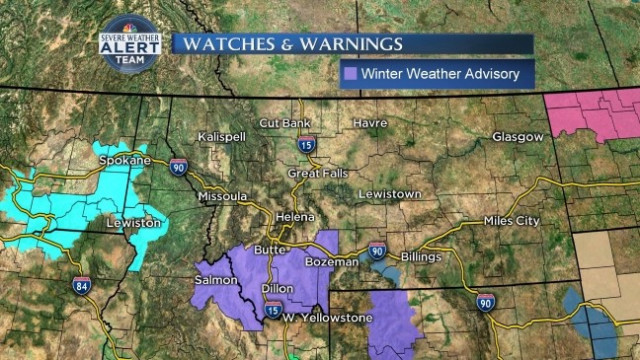 Ukraine reports 5,276 new COVID-19 cases
Ukraine reports 5,276 new COVID-19 cases
 Zelensky: Every third Ukrainian considers road construction one of greatest achievements of 2021
Zelensky: Every third Ukrainian considers road construction one of greatest achievements of 2021
 Ukraine ready to implement Minsk agreements, but Russia's desire needed - Yermak
Ukraine ready to implement Minsk agreements, but Russia's desire needed - Yermak
 Michel: EU unanimously agree to roll over economic sanctions against Russia
Michel: EU unanimously agree to roll over economic sanctions against Russia
 Actions by Ukraine's partners will help prevent worst-case scenario - Zelensky
Actions by Ukraine's partners will help prevent worst-case scenario - Zelensky
 COVID-19 in Ukraine: Health officials confirm 8,899 daily cases as of Dec 17
COVID-19 in Ukraine: Health officials confirm 8,899 daily cases as of Dec 17
 Macron tells Zelensky he declared support for Ukraine in call with Putin
Macron tells Zelensky he declared support for Ukraine in call with Putin
 Zelensky, Scholz discuss gas transit through Ukraine after 2024
Zelensky, Scholz discuss gas transit through Ukraine after 2024
 Ukraine ready for any format of talks with Russia - Zelensky
Ukraine ready for any format of talks with Russia - Zelensky
 Ukraine’s only journalist in Russia facing extremism charges - lawyer
Ukraine’s only journalist in Russia facing extremism charges - lawyer
 PM Shmyhal: First two applications for investment projects worth $96 million filed
PM Shmyhal: First two applications for investment projects worth $96 million filed
 Zelensky, PM of Italy discuss security situation around Ukraine
Zelensky, PM of Italy discuss security situation around Ukraine
 President signs off State Budget 2022
President signs off State Budget 2022
 London considering all options for responding to Russia's aggression against Ukraine
London considering all options for responding to Russia's aggression against Ukraine
 Putin, Biden to hold another round of talks
Putin, Biden to hold another round of talks
 Some 260,000 Ukrainians “victims of human trafficking” over 30 years - prosecutor general
Some 260,000 Ukrainians “victims of human trafficking” over 30 years - prosecutor general
 Ukraine plans to create center to protect energy infrastructure from cyber attacks
Ukraine plans to create center to protect energy infrastructure from cyber attacks
 No clear idea so far when Normandy Four top diplomats set to meet - German Ambassador
No clear idea so far when Normandy Four top diplomats set to meet - German Ambassador
 Ukraine receives EUR 600M in macro-financial assistance from EU
Ukraine receives EUR 600M in macro-financial assistance from EU
 Zelensky holds phone conversation with PM of Israel
Zelensky holds phone conversation with PM of Israel
 Ukraine sets new daily COVID vaccination record
Ukraine sets new daily COVID vaccination record
 MFA: European Union has not yet removed Ukraine from list of safe countries
MFA: European Union has not yet removed Ukraine from list of safe countries
 Kyiv records 1,023 new COVID-19 cases, 29 deaths
Kyiv records 1,023 new COVID-19 cases, 29 deaths
 G7 ambassadors welcome adoption of law on NABU status
G7 ambassadors welcome adoption of law on NABU status
 Ukraine can increase Covid vaccination rates to 1.5M a week – Liashko
Ukraine can increase Covid vaccination rates to 1.5M a week – Liashko
Hundreds of thousands of people were evacuated along India’s eastern coast on Thursday as authorities braced for a cyclone moving through the Bay of Bengal that was forecast to bring extremely severe wind and rain.
The India Meteorological Department in New Delhi said Cyclone Fani was expected to make landfall on Friday with gale-force winds of up to 200 kilometers (124 miles) per hour likely starting Thursday night. It warned of “extremely heavy falls” over parts of the state of Odisha and its southern neighbor Andhra Pradesh.
India’s National Disaster Management Authority forecast “high to phenomenal” sea conditions for most of the Indian states along the Bay of Bengal. Fishermen were advised not to venture into deep waters. A 1.5-meter (4.9-foot) storm surge was expected to inundate low-lying areas.
Fearing that Fani could be the worst storm since 1999, when a cyclone killed around 10,000 people and devastated large parts of Odisha, Indian officials put the navy, air force, army and coast guard on high alert, the Press Trust of India news agency reported.
Prime Minister Narendra Modi met with Cabinet ministers and weather and disaster-response officials for a briefing on the measures being taken.
The Meteorological Department projected “total destruction” of thatched-roof huts, flooding of farmland and orchards, and the uprooting of telephone poles.
India’s special relief commissioner told PTI that preparations for Fani include the country’s largest evacuation operation, of more than 800,000 people. Tourists were asked to leave the popular beach town of Puri in Odisha by Thursday night.
More than 800 shelters were opened and around 100,000 dry food packets were ready to be airdropped.
The National Disaster Response Force dispatched 54 rescue and relief teams to flood-prone areas along the coast and as far afield as Andaman and Nicobar Islands, a group of islands that comprise a state located about 1,300 kilometers (840 miles) east of mainland India in the Bay of Bengal.
The teams included doctors, engineers and deep-sea divers equipped with boats, scuba sets and satellite phones, the group said in a statement.
In the coastal city of Srikakulam in Andhra Pradesh, strong winds and heavy rain battered an empty beach where fishing boats had been left on shore. People piled into truck beds and buses reinforced with tin sheeting.
Residents tied plastic tarps over their tin-roof shacks before abandoning them.
Fani was also forecast to hit Bangladesh, tracking north through ports including Cox’s Bazar, the coastal district where more than a million Rohingya refugees live in refugee camps.

































































































































